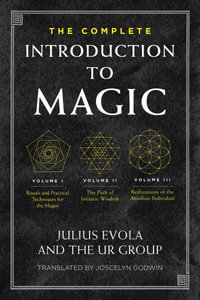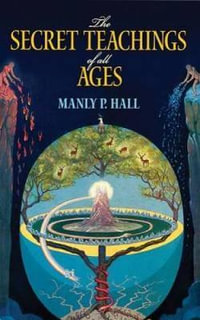Authentic initiatic practices, rituals, and wisdom collected by the UR Group
• Explores esoteric practices for individual development, handed down from a primordial tradition and discernable in alchemy, Hermetism, religious doctrines, Tantra, Taoism, Buddhism, Vedanta, and the pagan mysteries of the West
• Reveals the ultimate magical goal of the “Absolute Individual,” the immortal and divine potential that requires rare gifts and extraordinary efforts for its realization
This volume, the third in the series, complements the first two, yet they are not strictly sequential, and their contents can be read in any order. Volume III, more than the others, bears the personal stamp of Julius Evola. In its pages you’ll discover that the “magic” of the UR Group has nothing to do with sorcery or superstition. It was their term for an active and affirmative attitude toward individual development handed down from a “primordial tradition” and discernible in alchemy, Hermetism, esoteric religious doctrines, indigenous practices, Tantra, Taoism, Buddhism, Vedanta, and the pagan mysteries of the West. Its goal was the “Absolute Individual,” the immortal and divine potential that requires rare gifts and extraordinary efforts for its realization.
However, there is incalculable value in this volume even for the less heroic. By studying the practices and realizations within, the reader will be liberated from conventional dogmas--religious, political, scientific, and psychological--and see with the clearer eye of realization.
Industry Reviews
“Those who look to Julius Evola’s work for guidance have often wondered what practices Evola himself used to get in contact with Tradition. The answer lies in Introduction to Magic, which represents the records left behind by the UR Group, the mysterious occult order that was the medium through which Evola first experienced the reality of Tradition and grasped its essence. Many of the themes and concepts which were to recur in Evola’s later work are already present in these documents. The great importance Evola attached to these volumes is attested by the belief of Evola’s biographer that the original manuscripts were the only belongings he took with him when he was forced to flee Rome in 1944. The fact that this work is finally available in its entirety to Anglophone readers, masterfully translated by Joscelyn Godwin, is therefore a great service to genuine spiritual seekers everywhere.”
























